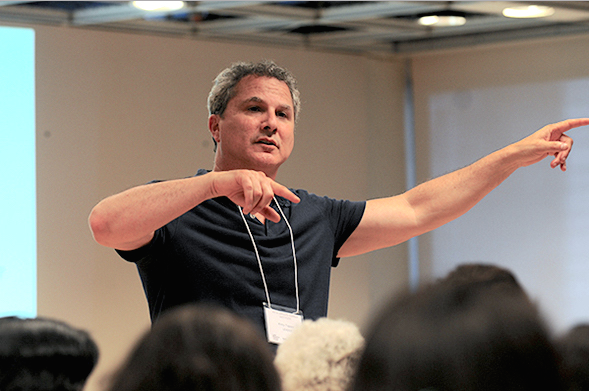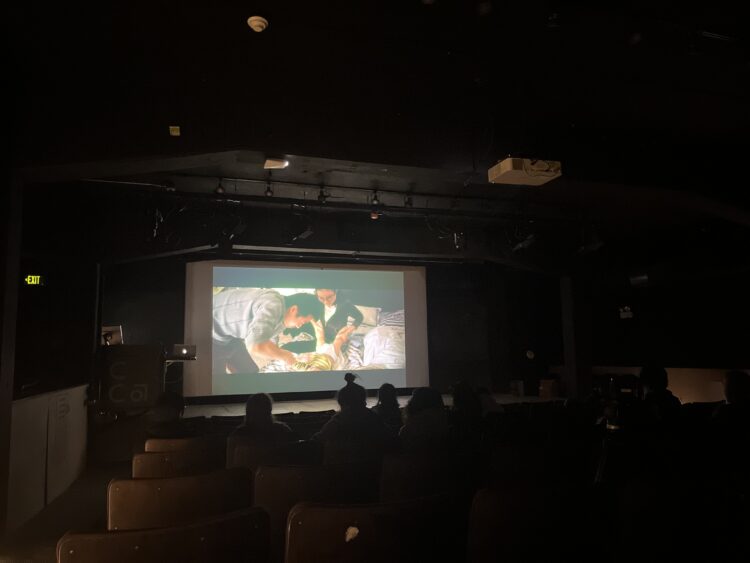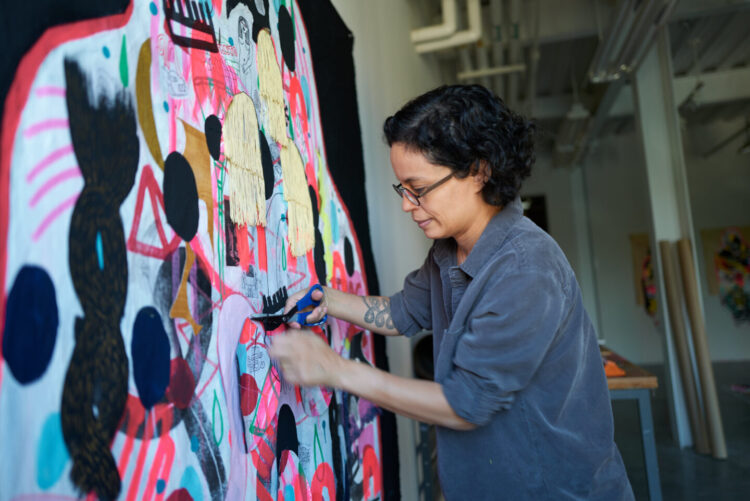Avoid "Artspeak": Kirby Tepper On Talking Straight

Kirby Tepper leading a workshop for Creative Capital’s Professional Development Program.
Kirby Tepper is a man of many talents: actor and educator are just a few of the hats he wears beyond the confines of his day job as a licensed psychotherapist. The same interpersonal expertise that makes him valuable to the clients in his practice also serves to empower his artist peers. Though he particularly enjoys working with artists, Kirby has helped people from many backgrounds, including doctors, writers and lawyers, find a more confident, direct communications style. On February 27, Kirby will be giving a webinar on Effective Negotiation For Artists, where participants will learn how to ask for what they deserve with confidence. We asked him about his theatrical inspirations and the do’s and don’ts of artist communication.
Ana Cecilia Alvarez: What about being an artist has made you a better therapist and what about being a therapist has made you a better artist?
Kirby Tepper: One of my mentors was acting teacher Uta Hagen, who drove home the idea of being as authentic in performance as possible. It led me to always try to accept physical and emotional truths in the surrounding context. And this led, as it pertains to performance, to always being truthful to ourselves and our audience about everything—from our depth of knowledge about our subject, to being authentic about the words we choose or when something goes wrong onstage (i.e. not pretending that there’s a technical problem, but instead embracing it). So as a therapist, I’m used to being authentic to my surroundings, both physical and emotional, and helping my clients see the truth in their surroundings and personal context. Maybe this can heal them; maybe it can at least help point the way to their most authentic self. I’m also interested in people’s stories. It’s axiomatic to me that truth is more compelling that fiction. I think being a therapist requires me to be as committed and interested in my clients stories as I am when I write or perform.
Ana Cecilia: When you teach negotiation skills and verbal communication, who are the authors or techniques you reference? Who have you studied in order to become better at communication?
Kirby: I’ve read and researched a ton of writers. For starters, Uta Hagen, like I mentioned, and Charles Nelson Reilly, another drama teacher. I enjoy reading about Systems Theory, in particular the work of Murray Bowen, who was a pioneer in how family systems operate. I use Viola Spolin’s theories about improvisation to help people understand that they are in a relationship with others and their surroundings. If they are doing an improvised scene with their audience they must always be responding to and adding information to what they ‘receive’ from their audience. When people operate on assumptions such as, “I am bad at public communication,” I use Cognitive Behavioral Theory to shine a light on those faulty premises and re-work them to something that fits more with their goals.
Ana Cecilia: What’s a common pitfall artists fall into when they try to communicate their desires or needs in a professional setting?
Kirby: I have a whole list! They try to sound impressive, apologize, both explicitly and implicitly, overshare and over-explain, use “artspeak” to sound erudite, and name drop.
Want more of Kirby’s wisdom? Don’t miss his February 27th webinar on Effective Negotiation for Artists.

